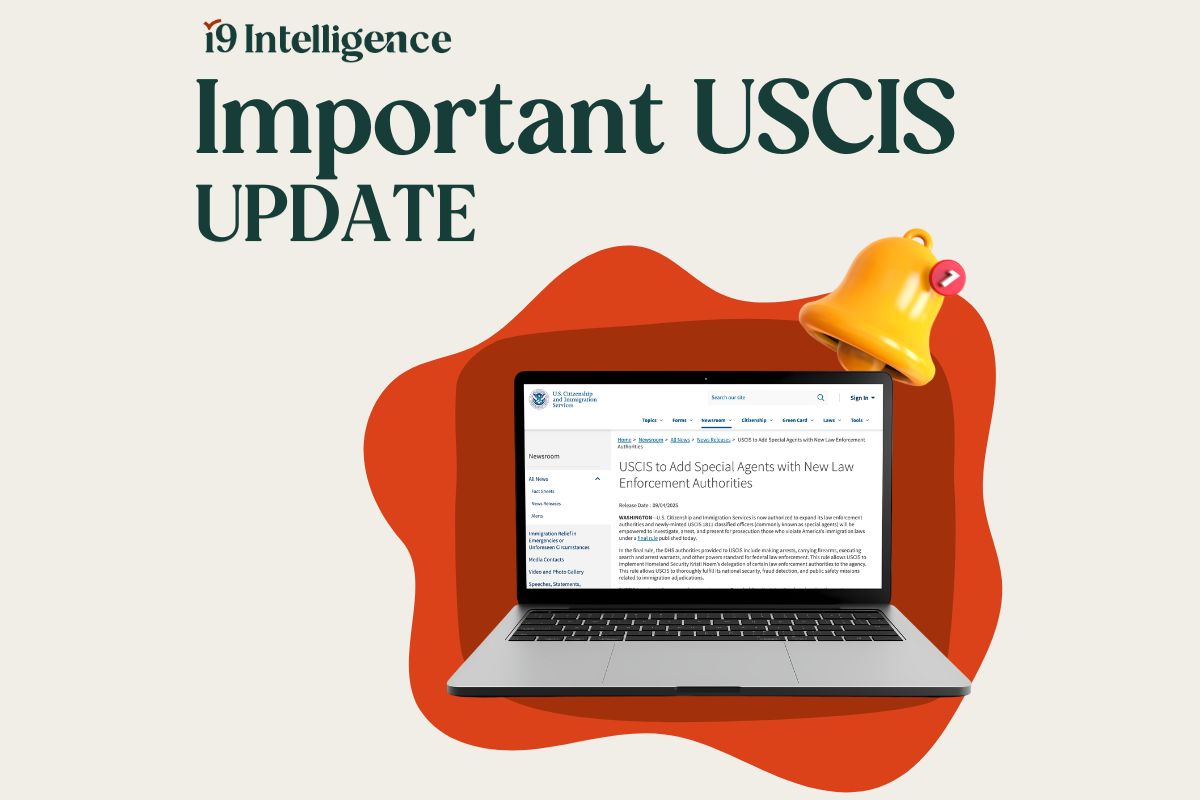USCIS Expands Enforcement Powers: What It Means for I-9 Compliance
In January 2025, the Department of Homeland Security (DHS) finalized a rule granting U.S. Citizenship and Immigration Services (USCIS) new law enforcement authority. For the first time, USCIS officers—classified as 1811 special agents—are authorized to investigate, arrest, and present for prosecution individuals and organizations that violate U.S. immigration laws.
For employers, this shift means I-9 compliance and document verification are no longer just paperwork risks. The same agency that approves work authorizations can now directly enforce against I-9 fraud, errors, or negligence.
Why This Rule Change Matters to Employers
- Direct Investigations by USCIS: Instead of referring suspicious cases to ICE Homeland Security Investigations, USCIS can now launch and complete investigations in-house.
- Faster Escalation: Cases of fraudulent or mishandled I-9 documentation can move more quickly from detection to enforcement.
- Civil and Criminal Exposure: Employers may now face penalties not only for knowingly hiring unauthorized workers but also for document errors that suggest negligence.
- Higher Audit Volume: With added staff and authority, USCIS has greater capacity to expand audit frequency, especially in high-turnover industries like retail, agriculture, hospitality, and construction.
What Employers Should Expect
- More Frequent I-9 Inspections: Employers should anticipate a rise in Notices of Inspection (NOIs) and requests for records directly from USCIS.
- Focus on Fraud & Document Abuse: Expect heightened scrutiny of document fraud, reverification lapses, and discriminatory practices tied to over-documentation.
- Overlap With ICE Investigations: While ICE will continue to target large-scale cases and transnational crime, USCIS is now empowered to take on routine employer-level enforcement.
Top I-9 Risks Under the New Enforcement Powers
- Accepting expired or fraudulent documents.
- Failing to reverify employees with temporary work authorizations.
- Inconsistent policies for copying and storing employee documentation.
- Over-documenting employees, which can lead to discrimination liability.
- Missing deadlines for Section 1, 2, or 3 compliance.
How Employers Can Prepare Now
- Conduct an Internal Audit: Review existing I-9s to catch expired or incomplete forms before enforcement agencies do.
- Standardize Training: Train managers on what documents are acceptable, how to spot obvious errors, and when reverification is required.
- Leverage Digital Compliance Tools: Use I-9 management software with built-in error detection, audit trails, and reverification alerts.
- Create an Audit Response Plan: Designate who will respond to government inquiries and where records are stored for quick access.
Related: What Documents Are Acceptable for I-9 Compliance
USCIS Enforcement is a Wake-Up Call
This rule marks a turning point in U.S. immigration enforcement. By empowering USCIS agents with law enforcement authority, DHS has doubled down on protecting the integrity of work authorization.
For HR leaders and compliance teams, the message is clear: I-9 compliance can no longer be treated as a box-checking exercise. With civil fines reaching $288–$2,861 per paperwork violation and up to $28,619 per unauthorized hire, employers must act now to tighten their I-9 strategy.
At i9 Intelligence, we help employers stay audit-ready with digital tools, training, and proactive compliance strategies. Try our I-9 Risk Calculator or schedule a free I-9 compliance review with our team today.
